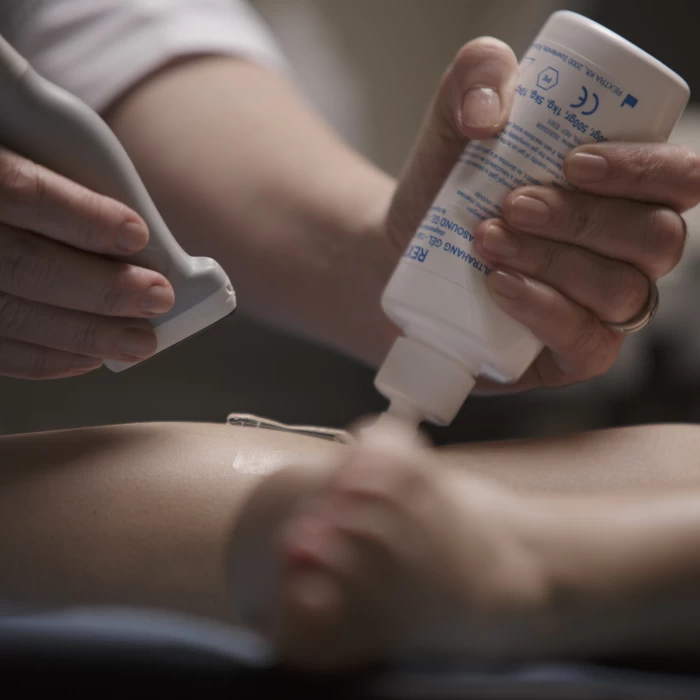X-rays, on the contrary, involve exposure to radiation. For this reason, they can be used exclusively in well-founded cases and by order of a medical specialist.
In what cases should we seek medical advice from a radiologist for our child?
- Ultrasonography:
Ultrasonographic examinations of newborns:- For general screening of a newborn: hip screening (from the age of 6 weeks to the age of 4 months) ultrasonography of the skull may be performed approximately until the age of 6 months (if the fontanelle is open)
- abdominal ultrasonography: abdominal organs – to examine for disorders of the liver, gall bladder, pancreas, spleen, kidneys, urinary bladder, organs of the lesser pelvis and some intestinal diseases
- Skeletal system: fractures, examination of orthopaedic problems, developmental disorders, inflammation, etc.
Our complex examination includes abdominal, cranial and hip ultrasound.
- Abdominal X-ray: e.g. intestinal obstruction, ingestion of foreign body
- Chest X-ray: e.g. in the case of clinical suspicion of pneumonia
Radiological examinations available at our clinic:
- hip, skull and abdominal ultrasonography:
- hip screening test (from the age of 6 weeks)
- ultrasonography of the skull (may be performed until the age of 6 months, when the fontanelle is still open)
- abdominal ultrasonography
- complex screening, which contains all three types of (hip, skull and abdominal) examination
Upon a paediatrician’s advice:
- X-ray examinations: upon the advice of medical specialist
- neck - diseases of the lymph nodes and the thyroid gland
- joints and muscles - in the case of pathological effusion, muscle tears and palpable abnormalities
- soft tissue – in the case of palpable abnormalities
- spine – in the first two months of life
- Further ultrasonographic examinations (upon medical advice)
- X-ray images: for infants, children and adults (upon medical advice)
Our related doctors
Any questions before booking an appointment?
If you are unsure which doctor to see or what examination you require, we are here to help!
Simply request a free callback from one of our colleagues, who will help you find the right specialist based on your specific issue.




Reviews